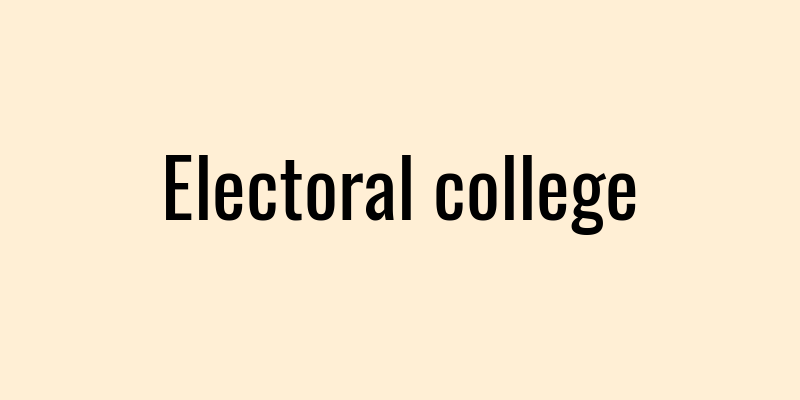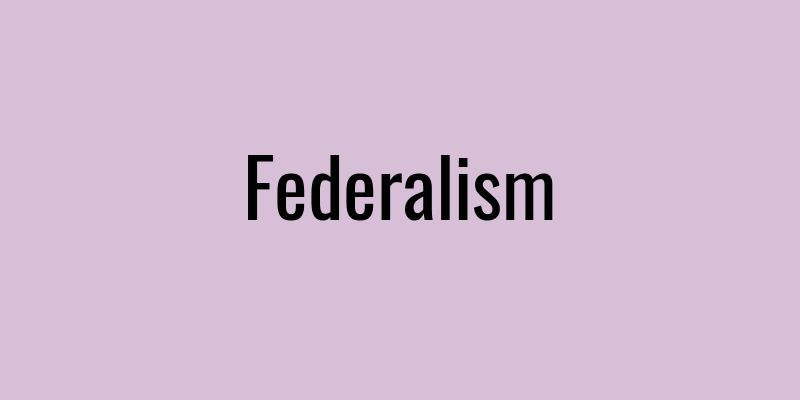The Electoral College: Pros and Cons
Examining the Benefits and Drawbacks of the Electoral College System
The Electoral College is a system used in the United States to elect the President and Vice President. It has been a subject of debate and controversy, with proponents and critics vocalizing their opinions on its effectiveness and fairness. In this article, we will explore the advantages and disadvantages of the Electoral College, shedding light on its impact on the democratic process.
Understanding the Electoral College system involves delving into its complexities and implications, and it is essential to weigh both its positive and negative aspects. By critically analyzing its strengths and weaknesses, we can gain a comprehensive perspective on its role in shaping the American electoral landscape.
Pros
The Electoral College system has been defended for various reasons, with proponents highlighting the potential advantages it offers. Let's delve into the positive aspects of the Electoral College and its impact on the electoral process.
Balancing Power Across States
One of the key arguments in favor of the Electoral College is its role in balancing power across states. By providing each state with a certain number of electoral votes, it prevents highly populated areas from overshadowing less densely populated regions. This ensures that the concerns and interests of less populous states are not overlooked during presidential elections, fostering a more equitable distribution of influence.
Stability and Certainty in Outcomes
The Electoral College has been praised for contributing to stability and predictability in election outcomes. Unlike a direct popular vote, where a small margin can trigger nationwide recounts, the Electoral College often produces clear winners. This can help instill confidence in the electoral process and prevent prolonged periods of uncertainty and dispute over election results.
Preventing Post-Election Disputes
The electoral college system helps prevent prolonged post-election disputes by providing a clear and definitive outcome. This reduces the likelihood of extended legal battles and uncertainty over the election results, promoting a more stable transition of power.
Enhancing the Influence of Small States
The electoral college enhances the influence of small states in the presidential election process. Without it, candidates might primarily focus on campaigning in densely populated urban areas, potentially neglecting the interests and concerns of residents in sparsely populated states. The electoral college ensures that candidates have to consider the views of citizens across a diverse range of states.
Preserving the Two-Party System
Advocates of the Electoral College argue that it helps sustain the two-party system in the United States. The winner-takes-all approach in most states encourages candidates to appeal to a broad range of voters and prevents the proliferation of numerous political parties. This, supporters claim, fosters stability and governability by discouraging excessive fragmentation of political interests.
Missing a pro?
Let us know which pro you are missing!
Cons
Despite its defenders, the Electoral College has faced substantial criticism and scrutiny. By examining its drawbacks, we can uncover the challenges and potential pitfalls associated with this electoral framework.
Complexity and Perceived Lack of Direct Representation
Detractors of the Electoral College emphasize its complexity and the perceived detachment of electors from the direct will of the people. The indirect nature of the system, where electors ultimately cast the official votes for the president, has been criticized for diluting the direct representation of citizens' choices, fueling debates about the system's democratic legitimacy.
Potential for Faithless Electors
The electoral college system creates the potential for faithless electors, who may disregard the popular vote in their state and cast their votes independently. This can lead to outcomes that do not align with the will of the people and undermine the democratic principles of the election process.
Disproportionate Influence of Swing States
Critics argue that the Electoral College amplifies the influence of 'swing states,' relegating voters in non-competitive states to a lesser role in the electoral process. This concentration of attention on swing states can lead to campaigns prioritizing the concerns of these states over those with less political leverage, potentially skewing the political agenda and neglecting the broader national interests.
Possible Discrepancy Between Popular Vote and Electoral Outcome
One notable point of contention is the potential for a candidate to win the electoral vote while losing the nationwide popular vote. This misalignment between the popular vote and the electoral outcome has sparked controversies, prompting calls for reevaluation of the Electoral College system to ensure a more direct representation of the electorate's preferences.
Undermining the Principle of One Person, One Vote
Critics argue that the electoral college undermines the principle of one person, one vote, as it can result in the winner of the popular vote losing the election. This has led to debates about the fairness and representativeness of the electoral college system in modern times.
Missing a con?
Let us know which con you are missing!
Conclusion
The Electoral College remains a central element of the American electoral process, wielding significant impacts on presidential elections. Its proponents and opponents continue to engage in rigorous debates over its efficacy and fairness. By exploring both the advantages and disadvantages of the Electoral College, we can foster a deeper understanding of its role in shaping the dynamics of democratic decision-making.
What do you think?
Do you think the pros outweigh the cons?






